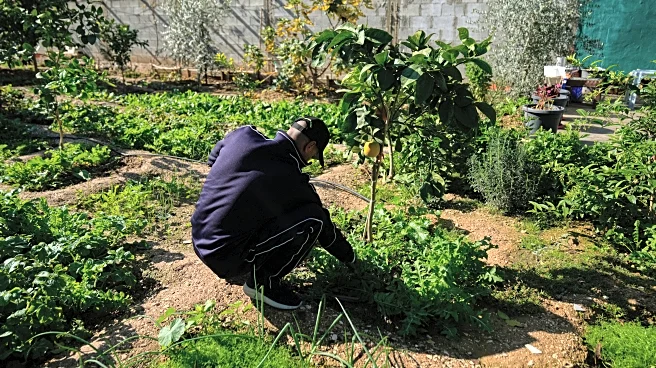What is the story about?
What's Happening?
The Food and Drink Federation (FDF) has updated its forecast for food and non-alcoholic drink inflation, predicting it could rise to 5.7% by December. This increase is attributed to persistent production cost pressures, including a 51% rise in agricultural commodity prices and quadrupled UK gas prices over the past few years. Despite stabilization in these costs in 2024, inflation remains high due to domestic policy impacts, such as increased National Insurance Contributions and the new packaging tax. The FDF highlights that UK food inflation is significantly higher than in other European countries, with July figures showing 4.9% compared to lower rates in France, Germany, and Spain.
Why It's Important?
The rising food and drink inflation poses significant challenges for UK households, who are already spending nearly double on food compared to energy. This trend could lead to increased financial strain, particularly for lower-income families. The inflationary pressures also impact food manufacturers, who have absorbed costs to mitigate consumer price hikes but are now passing these costs onto shoppers. The situation underscores the need for government intervention to alleviate regulatory burdens and support industry growth, which could help stabilize prices and ensure food security.
What's Next?
As the UK government prepares for the Autumn Budget, there is a critical need to address the high regulatory costs affecting the food and drink sector. The FDF calls for policies that incentivize investment, enhance productivity, and support skills development to counter inflation. Additionally, ongoing trade negotiations with the EU could play a role in managing future cost pressures. Stakeholders will be watching closely for government actions that could influence the trajectory of food prices and the overall economic landscape.















